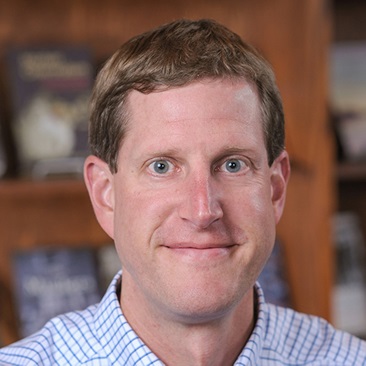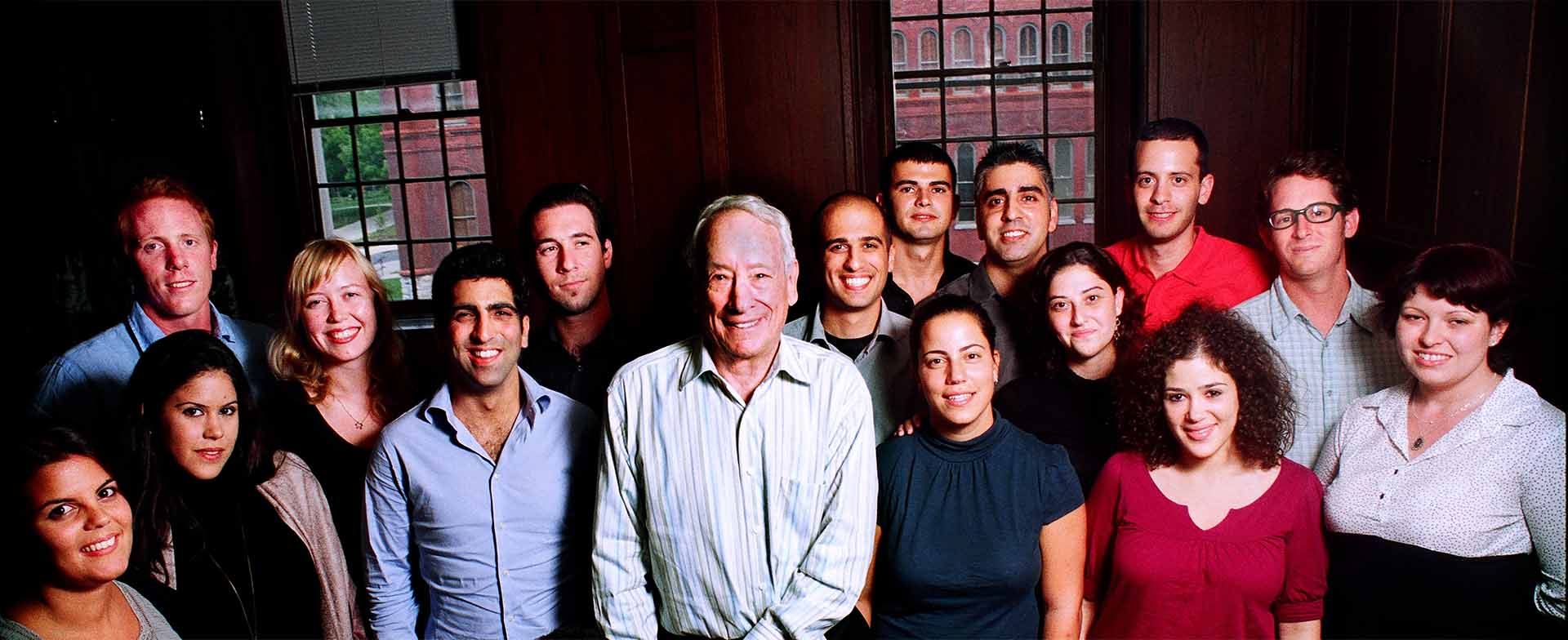
Gerry's Gang
September 1, 2008
Gerry Cramer is out to make the world a better place. “Investing” in Maxwell is one of his favorite methods. Concerned about the Middle East, for example, he recently gave $2 million to the security and counterterrorism institute Maxwell co-sponsors. He calls it “seed money.”
The discussion is not all that unusual, considering it’s taking place at the Maxwell School, touching on presidential politics and the American electoral system. But, given the participants, it feels a little bit special.
Sixteen students from the Interdisciplinary Center in Herzliya, Israel, are spending two weeks at the Maxwell School, learning about the American political system, U.S. foreign and defense policy, and conflict resolution. At the moment, they’re finishing up a session with political scientist and electoral-system expert Jeffrey Stonecash, whose research focuses on parties and their role in shaping debates about public policy. He leads a lively discussion that couldn’t be more timely.
It ends, but before the students head out to a day-ending reception at the home of another faculty member, they have a visitor. Gerry Cramer, on campus for other business, has asked to drop by and greet the group. Cramer is a highly successful money manager (now mostly retired), a member of the Syracuse University Board of Trustees, and a member of the Maxwell Advisory Board. He’s also the benefactor of the student-exchange program through which the Israelis have come to Maxwell (and through which Maxwell students travel to Israel to study counterterrorism and Arab culture).
Cramer is warm and engaging. He’s not there simply to soak up their gratitude. He wants to know these students—to know about them. He sits at the head of the seminar table and engages each: Who are you? What do you do? Is this your first trip to the United States? These undergraduate students are older than their American counterparts and have more life experience. Most have served their requisite Israeli military service before beginning their academic studies.
The session ends and students cluster around Cramer. They want their photo taken with him. “Thank you for the adventure and the opportunity,” says one young man, shaking Cramer’s hand. Another insists that, according to the Old Testament, he now must do something for Cramer. “Please. Take my card,” he says.
“Learn and go back and share your knowledge,” says Cramer. “That’s more than enough.”
Cramer loves any opportunity to meet students in the program, whom he affectionately refers to as “Gerry’s Gang.” “I really enjoy seeing the epiphanies that may happen to one or two or three of them each time, when something happens that changes their lives a little bit,” he says.
He recalls one American student recounting her shock at visiting Israel, which she had previously thought to be a third-world country. A Chinese student went over and came back with plans to translate a Hebrew guidebook into Chinese.
“You see the freshness in their faces. The new understanding,” says Cramer. “Of all I have done in my life from a philanthropic perspective, this is what I am most proud of.”
In his own way, Gerry Cramer is out to make the world a better place and the Maxwell School has become his vehicle of choice. In the last decade, he and his wife Daphna have funded more than three dozen student scholarships at the Maxwell School, four endowed professorships, and the Maxwell-Herzliya student exchange program.
Earlier this year, the Cramers made a remarkable, $2-million gift to SU’s Institute for National Security and Counterterrorism (INSCT), in which Maxwell and SU’s College of Law are partners.
Cramer regards the gift as an investment. He believes he can impact world peace by helping INSCT achieve international reach. The $2 million will support visiting professors, graduate student research, and other activities that will elevate the institute from a cluster of faculty members and students sharing scholarly interests to a “real, living organism.” That’s Cramer’s vision.
William Banks shares it. Banks is INSCT’s director, a professor of law and public administration, and an international authority on national security law and counterterrorism. He says the Cramers’ gift is transformative. “A gift of this magnitude allows us to become a major player among academic centers in this field,” he says.
Cramer’s interest in the Middle East is personal. His wife, Daphna, is a fourth-generation Israeli. She left Israel to marry him, and now that he’s semi-retired, the couple spends more than four months of the year at their home in northern Tel Aviv. “We have a lovely cottage by the sea,” he says. “I hear the pounding of the Mediterranean at night.”
Daphna is philanthropically involved with a local hospital there, while he has established boys’ and girls’ clubs for displaced Ethiopian Jewish children.
It was through Cramer’s assistance that INSCT established a formal collaboration with Israel’s International Policy Institute for Counter-Terrorism (ICT), housed at the Interdisciplinary Center, the first private university in Israel. The INSCT/ICT partnership began with the student exchange program, largely funded by Cramer. Originally, he envisioned Palestinian and Israeli mayors coming together to learn good government at Maxwell. When political conditions in the region made that marriage seem untenable, though, the focus was shifted to students.
Both schools have developed intensive two- and three-week courses exclusively for the students of their partnering institution that are designed to provide an overview of the host institution’s area of expertise. Syracuse sends students to ICT in Herzliya to study Israeli culture, governance, and counterterrorism policy; IDC sends Israeli students to Maxwell to learn about American politics.
“The best way for a student to learn is to be on the ground in a different area,” says Cramer. “For the Syracuse students, coming to Israel brings their school work to life. For the Israeli students, coming to the Maxwell School provides a crash course in American politics and public policy. They each leave with a better understanding of the respective countries that they couldn’t have gotten any other way.”
The partnership has grown beyond the student exchange. Last fall, INSCT and ICT teamed up to study the “rules of war,” holding an international conference in Washington, D.C., to debate a framework of acceptable norms in the changing face of warfare. “This joint venture will hopefully make a major contribution to intellectual knowledge of asymmetrical warfare and possibly rewrite the Hague Convention based on the facts of life today,” says Cramer, who traveled from Israel for the conference. “That’s cutting edge work.”
Although he’s a graduate of SU’s Whitman School of Management and has had a successful career in business, Cramer has a strong interest in international affairs. In 1999, he funded the Gerald B. and Daphna Cramer International Studies Awards, which provide graduate assistantships and cash awards to joint M.P.A./M.A. (I.R.) students. He also has funded two professorships in global affairs, currently held by Margaret “Peg” Hermann and Devashish Mitra.
And before that, he supported the aging studies program within Maxwell’s Center for Policy Research. “It struck me that people always get excited about funding children’s initiatives or children’s hospitals, but when it comes to older people, nobody gets too excited,” says Cramer. “The truth is, we’re all going to get old.”
Cramer was impressed with Professor Douglas Wolf’s embryonic gerontology group and decided to become a “seed investor,” funding his first endowed professorship, and making Wolf the Gerald B. Cramer Professor of Aging Studies.
“My whole concept with making donations is that I want to be the seed investor,” Cramer says. “I don’t have a billion-dollar foundation. If I can make a smaller investment to get something started, and then they can go to a foundation and get a follow-up investment, it can grow my little seed into a mighty oak. That’s what I hope to do with INSCT.”
“Of all I have done in my life from a philanthropic perspective, this is what I am most proud of.”
Gerry Cramer
Cramer’s philanthropy for Maxwell stems from his fondness and loyalty to Syracuse University. Cramer attended SU in the late 1940s and early 1950s, when many of his classmates were World War II veterans, attending SU under the G.I. Bill. Syracuse was unique in admitting any honorably discharged soldier, regardless of his or her previous academic record. Many of these students blossomed and Cramer admired the University for giving them an opportunity.
Unlike many private schools in the Northeast, Syracuse also had no admissions quotas for students who were black, Jewish, or women. For its time, the campus was a diverse place and Cramer appreciated the apparent open-mindedness.
He flourished at Syracuse, playing varsity tennis and becoming active in school activities such as the Traditions Commission, Goon Squad, Campus Leaders Society, and Interfraternity Council.
“Syracuse helped me grow up and feel good about myself,” says Cramer. “I look upon my college years as my own epiphany.”
After a stint as a lieutenant in the U.S. Navy during the Korean War, Cramer was hired as a trainee at Merrill Lynch, launching an investment career more successful than he ever could have imagined. He went on to work for AM Kidder and became a senior partner at Oppenheimer before forming his own firm, Cramer Rosenthal, in the early 1970s. Today, Cramer Rosenthal McGlynn manages close to $12 billion.
Cramer is a trustee of Syracuse University, serving as co-chair of the Investment & Endowment Committee. Over the past decade, though, he has become increasingly involved at the Maxwell School, becoming a good friend to students and faculty members whose goals he helps realize.
“Gerry Cramer is a dean’s dream, a benefactor who gives generously with little to no restrictions or conditions on his gifts,” says Robert McClure, the former senior associate dean who worked with Cramer on some of his early gifts; and, by chance, the faculty member who coordinates the academic content of the Israeli students’ visit. “He trusts in the leadership of the School and in the students—that if given the opportunity, they will use it wisely.”
“I have often suggested, only half jokingly, that I would like to clone Gerry Cramer,” adds Dean Mitchel Wallerstein. “I say this not only because of his extraordinary generosity, but also because of the warm and caring person that he is. We are deeply grateful for Gerry and Daphna’s steadfast support, for the creativity embodied in their many gifts, and for the example their philanthropy sets for others.”
Cramer believes strongly in both public service and philanthropy. “My mission in life is not just to write checks, but to give my soul and my passion,” he says. “One is muscle and the other is blood.”
He prefers supporting “software” (intellectual programs) over “hardware” (bricks and mortar). “To me that’s just far more interesting,” he says.
The day after meeting with the Israeli contingent, Cramer is getting ready to meet with another group of student beneficiaries. He has purchased a dozen VIP tickets to The Express, the feature-film story of SU football legend Ernie Davis. The world premiere is being held in Syracuse this night and the movie’s stars (including Dennis Quaid and Rob Brown) and a roster of Syracuse football legends (e.g., Jim Brown and Floyd Little) will be in attendance.
The students Cramer has invited are not from the Maxwell School, but student-athletes from Syracuse city high schools. They will accompany Cramer on the limo ride downtown and to the movie screening and gala, where they’ll have the opportunity to meet the celebrities and sports legends in attendance.
It’s an idea he came up with on his own. “My wife is in Israel and I needed a date,” he jokes. When pressed he says, “It just seems so obvious. I don’t know why more people don’t do things like this.”
Cramer is excited to meet the kids and see who was selected. He asked for students who were good kids with leadership qualities. He hopes to give them an experience of a lifetime.
“Obviously, Ernie Davis is an example of a great hero,” he says. “Everyone needs a hero and these kids probably need a hero more than most.
“I’ll get to spend the evening with 12 nice kids,” Cramer says. “Another Gerry’s Gang.”
By Renée Gearhart Levy
This article appeared in the fall 2008 print edition of Maxwell Perspective; © 2008 Maxwell School of Syracuse University.
Related News
School News
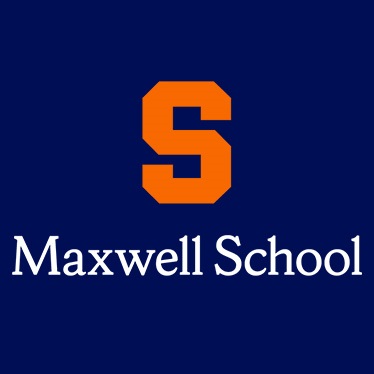
Apr 2, 2024
School News
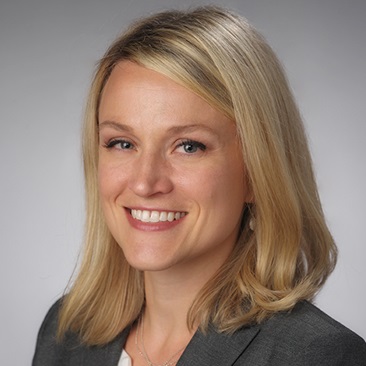
Mar 7, 2024
School News
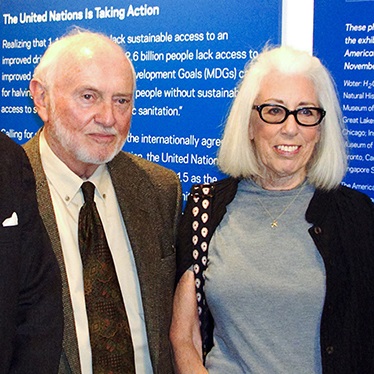
Nov 29, 2023
